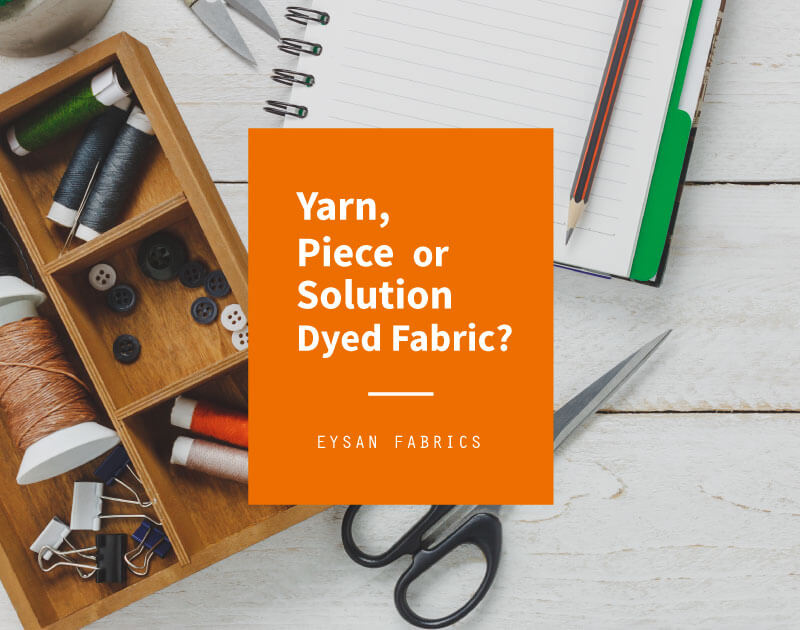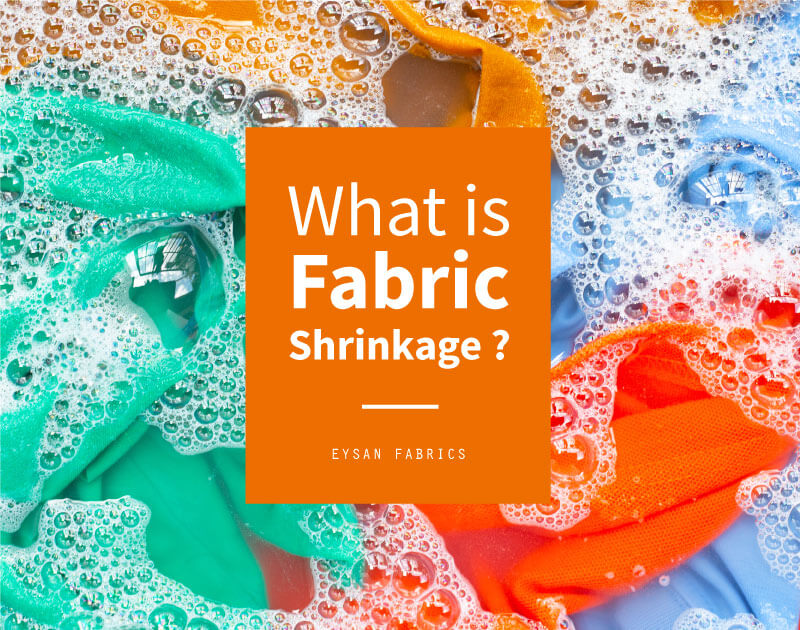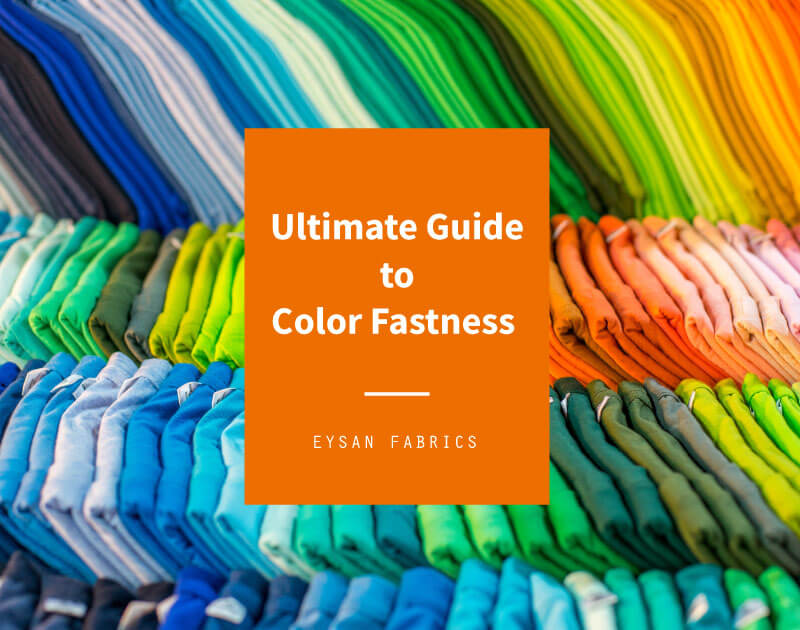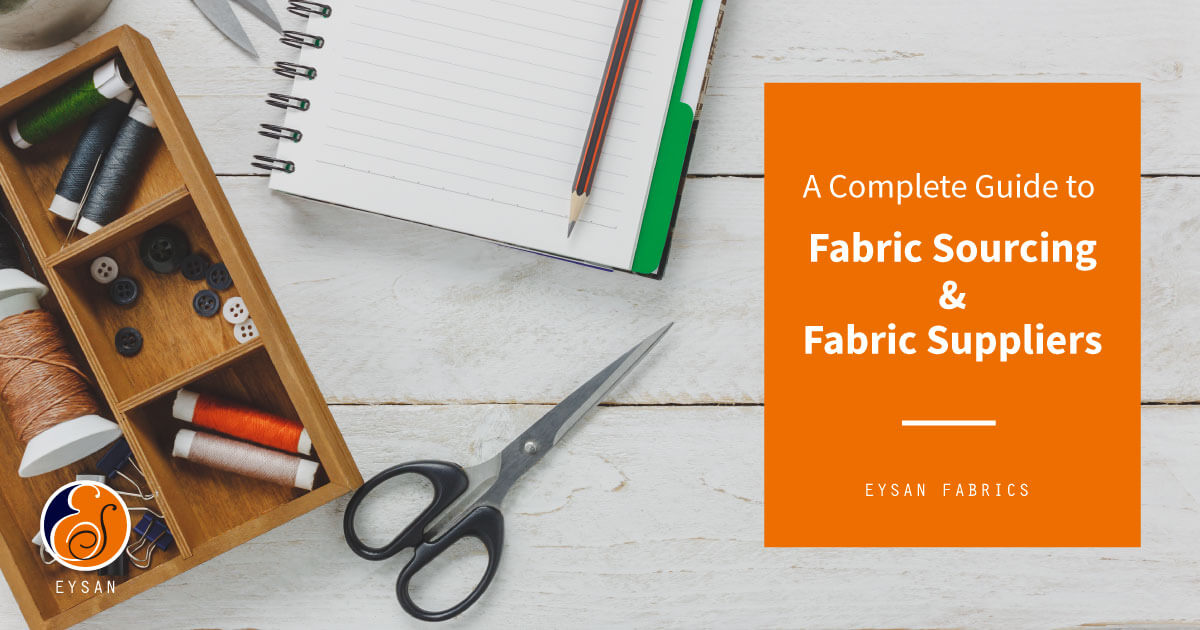
Fabric sourcing can be a complicated business. Going to the wrong supplier or asking for the wrong thing can waste a lot of time and really slow down your manufacturing process. That’s why we’ve put together this complete guide to fabric sourcing.
This guide will help you to:
- Clarify your fabric requirements.
- Decide what kind of supplier you need.
- Ask potential suppliers all the right questions.
So here we go…
What are Your Fabric Requirements?
First things first, you need to have a very clear idea of your fabric requirements. Before you go to a supplier think about the following points:
Fabric type.
Do you need a woven fabric or a knit fabric? The fabric you need will depend upon the garment you’re creating.
- Woven Fabric – used for fashion wear, outerwear, shirts and uniforms
- Knit Fabric – used for sportswear, underwear and lingerie.
Material.
Both woven and knit fabrics are available in synthetic and natural varieties or as a blend of the two.
- Natural fabric is made from materials found in nature. These include cotton, wool and silk.
- Synthetic fabric is entirely manmade from chemicals. These include rayon, acrylic and polyester.
Specifications and Quantity.
What size do you need your fabric to be? How much fabric do you need? You also need to consider the weight of the fabric, which relates to its comfort and thickness. Ask your garment mills for advice about the width and quantity of fabrics you need because these factors affect the cutting and the cost.

Find the Right Fabric Supplier
Now you know exactly what fabric you’re looking for, you need to find the right fabric supplier.
Where to Look for a Fabric Supplier?
Search online for your fabric supplier. You’ll find local and international suppliers to choose from. Wholesale and made-to-order fabrics can be found through Google and sourcing platforms like Alibaba, Global Sources and Taiwan Trade.

It’s also possible to find fabric suppliers at industry trade shows. Here are some of the biggest and best shows around for particular garment types:
- Sportswear and outdoor wear: ISPO (Munich, Germany). TITAS Taipei (Taiwan). Performance Days (Munich, Germany and New York). Outdoor Retailer (Denver, USA).
- Fashionwear: Premier Vision (Paris, France). Texworld Paris (Paris, France).
- Comprehensive: Intertextile Shanghai (Shanghai, China). Canton Fair (Guangzhou, China).
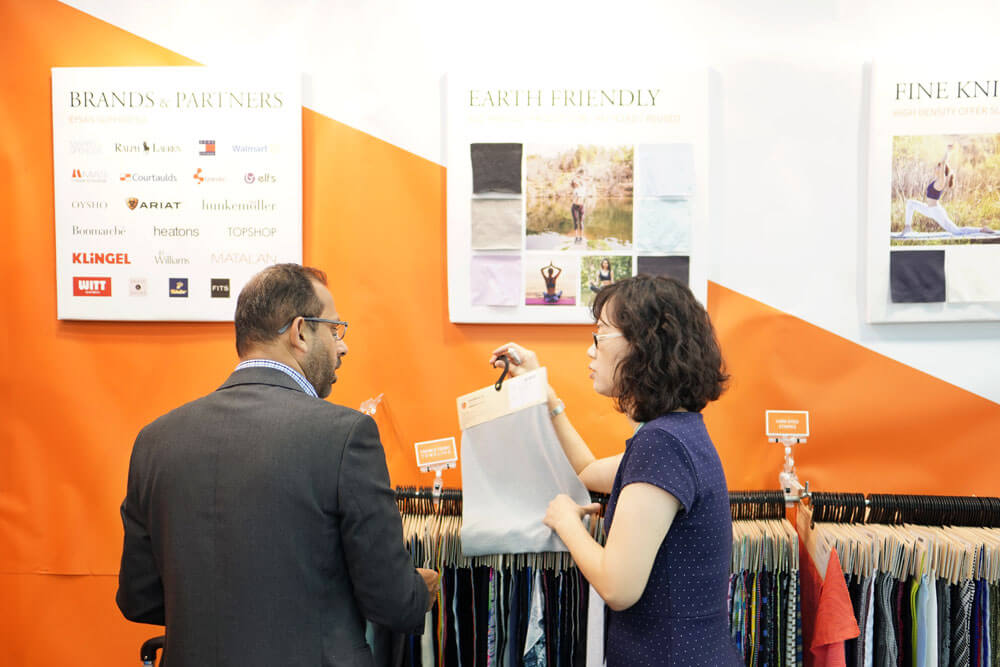
Different Types of Supplier
One size doesn’t fit all. It’s not a case of finding any fabric supplier. Each fabric supplier will have their own specialties. And the type of fabric supplier you need will depend upon your particular manufacturing project.
Different types of fabric supplier include:
RETAILER: A standard fabric store offering small quantities of available stock.
WHOLESALER: A bigger retailer with large quantities of available stock.
JOBBER: Similar to a wholesaler but specializing in discontinued fabric lines.
TRADER: Traders buy and sell as instructed by their buyer and sometimes work on commission.
CONVERTER: Converters buy standard fabrics from a wide selection of mills. They then dye, print or finish the fabric to buyer specifications. They often have a wide product line and can do customized orders.
FABRIC SOURCING AGENT: Agents work with a long list of fabric suppliers. They sometimes work on a commission basis and may be able to offer better deals because of the leverage they have with mills.
FACTORY: A one-stop solution of both mill and factory. They work with the biggest brands. They don’t put product information on the internet and require a very high MOQ.
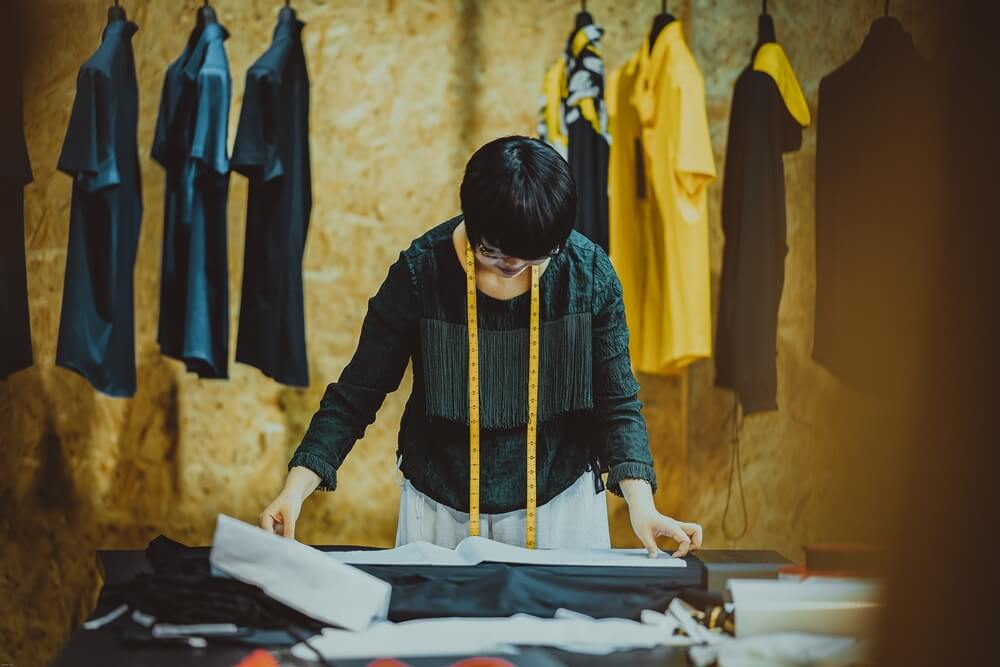
And here’s a quick summary of what you can expect from each of these types of fabric supplier:
| Fabric Supplier | Product Diversity | Minimum Order (MOQ)? | Fabric in Stock? | Best Choice For… |
|---|---|---|---|---|
| Retailer | High | None | Yes | · A few yards of fabric. · Private use. · DIY projects. |
| Wholesaler / Jobber | Medium | Yes (But very low) | Yes | · Around 100 yards of fabric.· Small business. |
| Trader | High | Yes | No | · 1000 yards+ of fabric.· Medium-sized clothing line. |
| Converter | High | Yes | Yes (But very limited quantity) | · 3000 yards+ of fabric.· Garment factories.· Small to medium-sized brands.· International brands. |
| Fabric Sourcing Agent | High | Yes | No | · 1000 yards+ of fabric.· Garment factories.· Local and international brands. |
| Factory | Depends upon the factory | Yes (usually very high) | Yes (But very limited quantity) | · Huge quantities of fabric.· Garment factories.· International brands. |
Questions to Ask your Fabric Supplier
So you’ve decided on the kind of fabric supplier you want to work with. And you’ve drawn up a shortlist of possibilities. Now for the questions you need to ask them.

1. Do you have what I need?
Give the supplier your fabric specification in as much detail as possible. This should include knitting structure, composition, weight, post-finishing, order quantity and any testing requirements.
2. Is the fabric in stock? / What is your lead time?
Retailers, wholesalers and jobbers keep fabrics in stock. But stock is inevitably limited. Do they have the fabric you’re looking for?
Converters, fabric sourcing agents and factories don’t have every item in stock and normally operate on a make-to-order basis. How long will it take them to make your fabric? Does their timeline fit with your production schedule? Will you be able to meet your product release date?
3. Is there a MOQ (Minimum Order Quantity) or MCQ (Minimum Color Quantity)?
Some suppliers (converters, fabric sourcing agents and factories) have a MOQ or MCQ requirement. They may be willing to produce a smaller order. But in these cases, they’re likely to add on a surcharge.
4. What is the price?
An obvious question but be sure of your units. Are you being charged per yard, per meter or per kilo? And what is the surcharge if you’re ordering less than the MOQ or MCQ?
5. What are the payment terms?
Will your supplier require a T/T (telegraphic transfer) payment? Do they ask for payment in advance? Determine Incoterms sooner rather than later – who will be responsible for shipping, insurance and tariffs?
The answers you get to these questions should help you decide on the fabric supplier you want to work with. And get you one step closer to a finished line of garments.
EYSAN is a knit fabric converter. We source materials from yarn suppliers. Then we collaborate with a variety of knitting, dyeing and post-finishing mills. This means we can offer a wide range of fabrics and great flexibility for our clients.
Learn more about knit fabric:
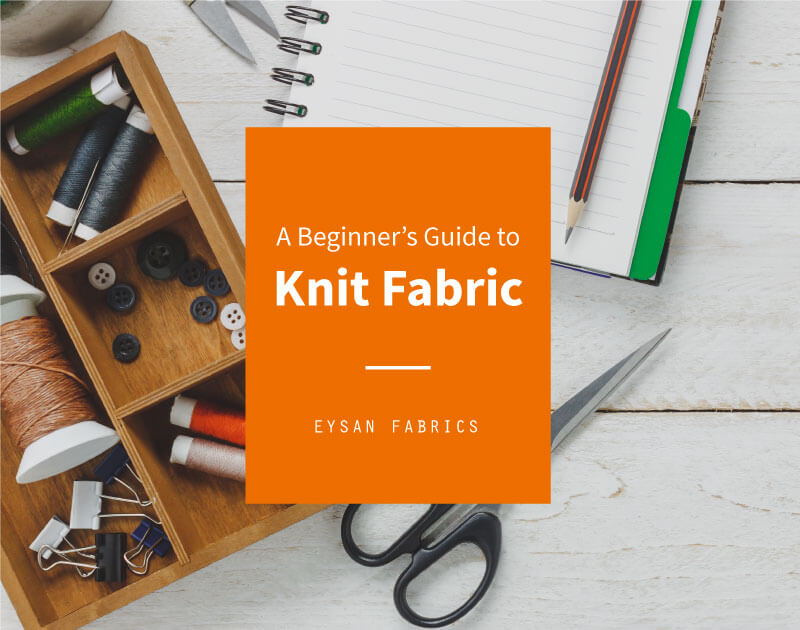
A Beginner’s Guide to Knit Fabric
What is knit fabric? Here you will learn types, characteristics, and applications of knit fabric, one of the most common apparel fabric, with pictures!
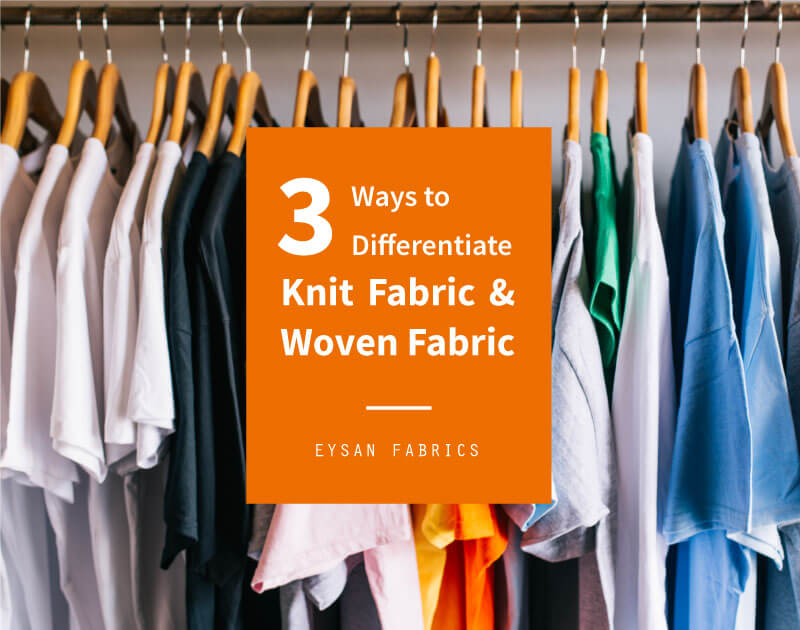
3 Ways to Differentiate Knitted and Woven Fabrics
The difference between knit and woven fabric is very obviouse and simple. We use their characteristics to differentiate knit and woven fabric in 3 ways.
Want to know more about EYSAN? Or looking for fabric advice?
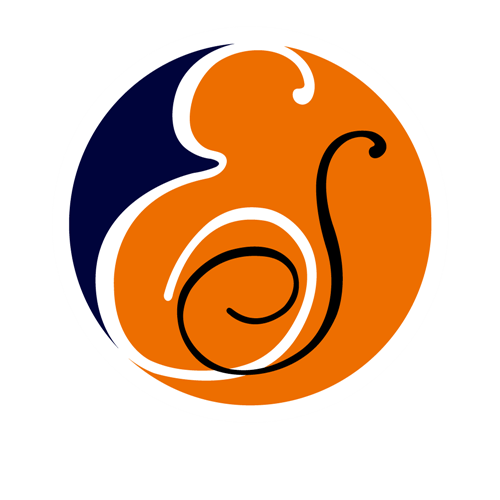
Eysan Fabrics
Eysan is a knitted fabric expert. Since 1986, it has continually supplied quality fabrics and service to clothing manufacturers and well-known clothing, athletic, and underwear brands. If you have any questions regarding knitted fabrics or have any knitted fabric needs, please feel free to reach out to us.

